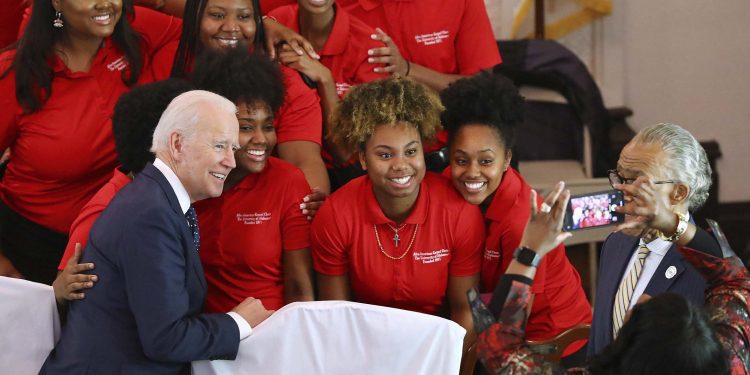Selma (US): An emboldened Joe Biden is trying to cast himself as the clear moderate alternative to progressive Bernie Sanders as the Democrats; shrinking presidential field raced toward ‘Super Tuesday’.
One of Biden’s leading moderate rivals, former South Bend, Indiana, mayor Pete Buttigieg, dropped out of the campaign Sunday just 24 hours after Biden scored a resounding victory in South Carolina, his first of the 2020 rollercoaster nomination fight.
While other rivals appeared undeterred, Biden pressed his case during a round of national television interviews that reflected a stark reality a day after his resounding primary victory in South Carolina: The former vice-president was forced to rely upon free media coverage because he was understaffed, underfunded and almost out of time as he fought to transform his sole win into a national movement.
Biden vowed to improve his campaign operation, his fundraising haul — and even his own performance – in an interview on the ‘ABC’ programme ‘This Week’.
Meanwhile Americans eager to know which Democrat will face President Donald Trump in November’s election may have a clearer view after ‘Super Tuesday’ – sure to be a defining moment in the race.
Four of the country’s 50 states have already voted, but March 3 is the biggest day of the entire presidential primary process, with tens of millions of Americans eligible to cast ballots.
It could be a turning point when frontrunner Bernie Sanders secures an insurmountable lead – or former vice president Joe Biden secures a dramatic comeback.
Success on ‘Super Tuesday’ requires a tremendous ground game, top-notch fundraising and serious momentum.
Elizabeth Warren and Amy Klobuchar will likely have to face a daunting choice Wednesday morning: defy the odds and keep going, or bow out.
The states in play span the nation, from sparsely populated northeastern-most Maine to California, the progressive west coast powerhouse whose population of 40 million is the country’s largest.
The southern state of Texas, with 29 million, is another top prize. Virginia, North Carolina, Alabama and Colorado also cast ballots. The other states in play are Arkansas, Massachusetts, Minnesota, Oklahoma, Tennessee, Utah and Vermont.
With the 14 states – plus American Samoa and Democrats living abroad – reflecting the nation’s social and economic diversity, ‘Super Tuesday’ provides opportunity for candidates to demonstrate their ability – or weakness – to draw from a broad swath of voters from different backgrounds and across different regions.
Tabulating votes could take all night.
A third of the delegates who will formally pick the Democratic presidential nominee are up for grabs, making it a critical point in the US electoral calendar.
Earning the party’s nomination requires a candidate to win an absolute majority of delegates – 1,991 – who are assigned proportionally according to results in each primary or caucus.
A whopping 1,357 delegates are available Tuesday, compared to just 155 that have been allocated so far.
AP






































